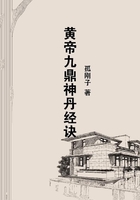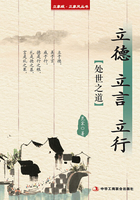While the radical program was being executed in the South, Congress was engaged not only in supervising reconstruction but in subduing the Supreme Court and in "conquering" President Johnson.One must admire the efficiency of the radical machine.When the Southerners showed that they preferred military rule as permitted by the Act of the 2nd of March, Congress passed the Act of the 23d of March which forced the reconstruction.When the President ventured to assert his power in behalf of a considerate administration of the reconstruction acts, Congress took the power out of his hands by the law of the 19th of July.The Southern plan to defeat the new state constitutions by abstention was no sooner made clear in the case of Alabama than Congress came to the rescue with the Act of March 11, 1868.
Had it seemed necessary, Congress would have handled the Supreme Court as it did the Southerners.The opponents of radical reconstruction were anxious to get the reconstruction laws of March 1867, before the Court.Chief Justice Chase was known to be opposed to military reconstruction, and four other justices were, it was believed, doubtful of the constitutionality of the laws.
A series of conservative decisions gave hope to those who looked to the Court for relief.The first decision, in the case of ex parte Milligan, declared unconstitutional the trials of civilians by military commissions when civil courts were open.A few months later, in the cases of Cummings vs.Missouri and ex parte Garland, the Court declared invalid, because ex post facto, the state laws designed to punish former Confederates.
But the first attempts to get the reconstruction acts before the Supreme Court failed.The State of Mississippi, in April 1867, brought suit to restrain the President from executing the reconstruction acts.The Court refused to interfere with the executive.A similar suit was then brought against Secretary Stanton by Georgia with a like result.But in 1868, in the case of ex parte McCardle, it appeared that the question of the constitutionality of the reconstruction acts would be passed upon.McCardle, a Mississippi editor arrested for opposition to reconstruction and convicted by military commission, appealed to the Supreme Court, which asserted its jurisdiction.
But the radicals in alarm rushed through Congress an act (March 27, 1868)which took away from the Court its jurisdiction in cases arising under the reconstruction acts.The highest court was thus silenced.
The attempt to remove the President from office was the only part of the radical program that failed, and this by the narrowest of margins.During the spring and summer of 1866, there was some talk among politicians of impeaching President Johnson, and in December a resolution was introduced by Representative Ashley of Ohio looking toward impeachment.Though the committee charged with the investigation of "the official conduct of Andrew Johnson"reported that enough testimony had been taken to justify further inquiry, the House took no action.There were no less than five attempts at impeachment during the next year.Stevens, Butler, and others were anxious to get the President out of the way, but the majority were as yet unwilling to impeach for merely political reasons.There were some who thought that the radicals had sufficient majorities to ensure all needed legislation and did not relish the thought of Ben Wade in the presidency.* Others considered that no just grounds for action had been found in the several investigations of Johnson's record.Besides, the President's authority and influence had been much curtailed by the legislation relating to the Freedmen's Bureau, tenure of office, reconstruction, and command of the army, and Congress had also refused to recognize his amnesty and pardoning powers.
* Senator Wade of Ohio was President pro tempore of the Senate and by the act of 1791 would succeed President Johnson if he were removed from office.
But the desire to impeach the President was increasing in power, and very little was needed to provoke a trial of strength between the radicals and the President.The drift toward impeachment was due in part to the legislative reaction against the executive, and in part to Johnson's own opposition to reconstruction and to his use of the patronage against the radicals.Specific grievances were found in his vetoes of the various reconstruction bills, in his criticisms of Congress and the radical leaders, and in the fact, as Stevens asserted, that he was a "radical renegade." Johnson was a Southern man, an old-line State Rights Democrat, somewhat anti-Negro in feeling.He knew no book except the Constitution, and that he loved with all his soul.
Sure of the correctness of his position, he was too stubborn to change or to compromise.He was no more to be moved than Stevens or Sumner.To overcome Johnson's vetoes required two-thirds of each House of Congress; to impeach and remove him would require only a majority of the House and two-thirds of the Senate.
The desired occasion for impeachment was furnished by Johnson's attempt to get Edwin M.Stanton, the Secretary of War, out of the Cabinet.Stanton held radical views and was at no time sympathetic with or loyal to Johnson, but he loved office too well to resign along with those cabinet members who could not follow the President in his struggle with Congress.He was seldom frank and sincere in his dealings with the President, and kept up an underhand correspondence with the radical leaders, even assisting in framing some of the reconstruction legislation which was designed to render Johnson powerless.In him the radicals had a representative within the President's Cabinet.














